
Orchestrating the Collaboration Between Humans and AI in Project Management: A Harmony of Strengths
The realms of Project Management (PM) have felt the sweeping advancements of artificial intelligence (AI) more than ever in recent years. As AI capabilities continue to evolve, so does its integration into project management processes, transforming them to new heights of efficiency and effectiveness.
However, to truly harness the power of AI in PM, it becomes crucial to understand and navigate the collaborative dynamics between humans and AI.
Understanding the Role of AI in Project Management
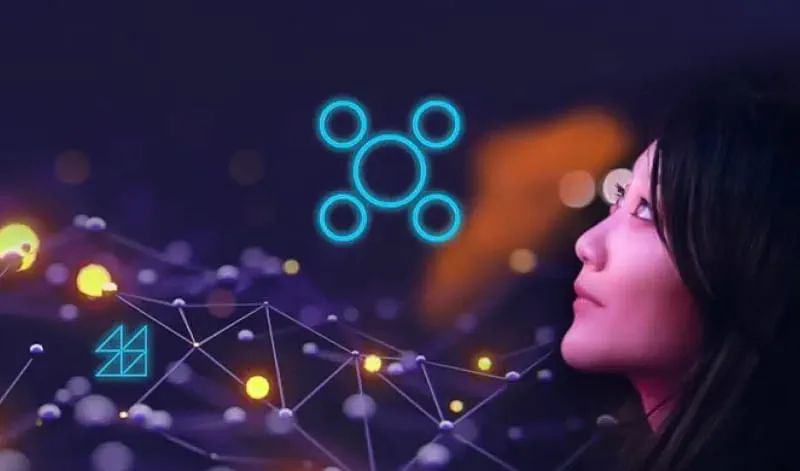
i. AI Capabilities in Project Management
AI can support project management in various ways, including:
- Automation of Routine Tasks: AI can automate repetitive tasks such as scheduling, resource allocation, and progress tracking, freeing up project managers to focus on strategic decision-making.
- Predictive Analytics: AI algorithms can analyze historical project data to predict potential risks, budget overruns, and timeline delays, enabling proactive management.
- Enhanced Decision-Making: By processing vast amounts of data, AI can provide insights that help project managers make more informed decisions.
- Improved Communication: AI-powered chatbots and virtual assistants can facilitate better communication among team members and stakeholders by providing timely updates and responses to queries.
- Natural Language Processing (NLP): Improving communication by analyzing emails, meeting notes, and project documents to distill actionable insights.
- Advanced Data Analytics: Leveraging AI to analyze complex datasets for better project forecasting, budget management, and strategic planning.
ii. Human Expertise in Project Management

Despite AI’s advanced capabilities, human expertise remains irreplaceable in several areas:
- Strategic Planning: Humans excel at strategic thinking, setting project goals, and aligning them with organizational objectives.
- Leadership and Team Management: Effective leadership, team motivation, and conflict resolution require emotional intelligence and interpersonal skills that AI cannot replicate.
- Complex Problem Solving: Human intuition and creativity are crucial for solving complex problems that lack historical data for AI analysis.
- Stakeholder Engagement: Building and maintaining relationships with stakeholders involve empathy and nuanced understanding that AI lacks.
- Strategic Oversight: Human project managers provide strategic direction, ensuring projects align with organizational goals.
- Critical Thinking: Humans excel in critical thinking and problem-solving, skills that are difficult for AI to replicate.
- Emotional Intelligence: Managing team dynamics, motivating staff, and resolving conflicts are inherently human tasks where empathy and emotional intelligence are crucial.
- Ethical Judgement: Humans are essential for making ethical decisions, particularly when AI outcomes affect stakeholders’ well-being.
iii. The Score: Benefits of the Collaboration
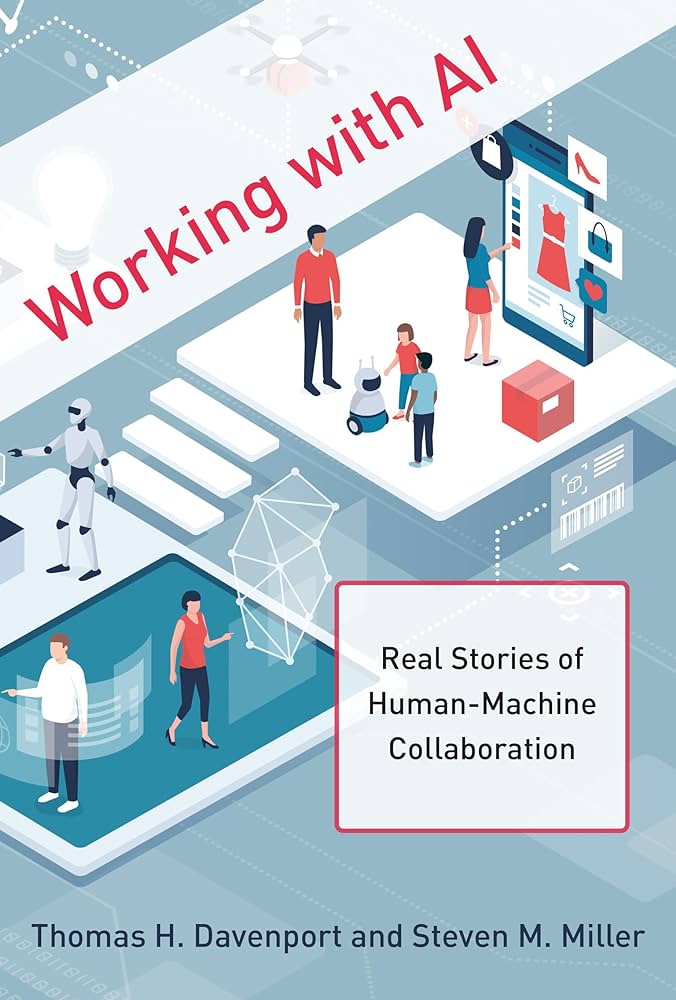
Let’s explore some key benefits of this collaborative approach:
- Enhanced Decision-Making: AI can analyze vast amounts of data to identify trends and predict potential roadblocks. This empowers project managers to make informed decisions based on insights, not just gut feelings.
- Increased Efficiency and Productivity: AI can automate repetitive tasks, freeing up valuable human time for strategic planning and team leadership.
- Improved Risk Management: AI can continuously monitor project health, identifying potential risks early on.This allows project managers to take proactive measures to mitigate them.
- Enhanced Communication and Collaboration: AI-powered tools can facilitate communication within the team and with stakeholders, promoting transparency and keeping everyone on the same page.
iv. The Harmony: Building a Successful Collaboration

While the potential is undeniable, a successful human-AI collaboration requires careful orchestration:
- Clearly Defined Roles: It’s crucial to define the roles of humans and AI within the project. AI is a powerful tool, but it cannot replace human judgment and leadership.
- Building Trust and Transparency: Team members need to understand how AI works and trust its outputs.Transparency in data collection and algorithm design fosters trust.
- Developing the Right Skills: To work effectively with AI, project managers need to develop new skills in data analysis, interpretation, and AI integration.
- Investing in Training and Education: Training for both project managers and team members on using and interpreting AI data for better decision-making is crucial.
v. The Symphony of Strengths: Humans and AI
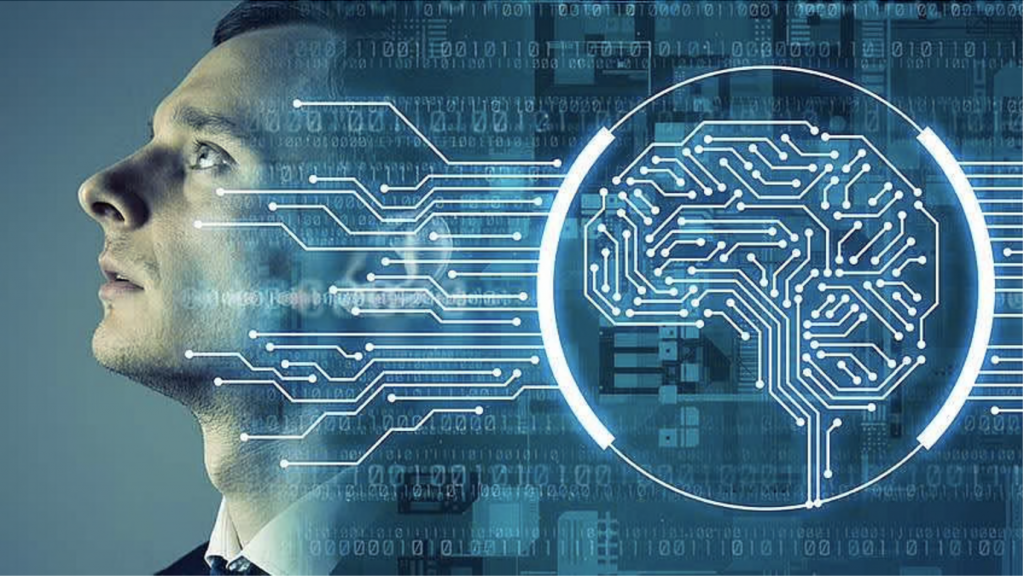
Humans bring a wealth of experience, intuition, and creativity to the table. We excel at strategic thinking, stakeholder management, and navigating complex situations. AI, on the other hand, possesses exceptional analytical power, data processing speed, and the ability to identify patterns invisible to the human eye. Imagine a project manager armed with real-time risk assessments generated by AI, or a team leveraging AI to optimize resource allocation and scheduling. This is the power of human-AI collaboration.
vi. Strategies for Effective Human-AI Collaboration

To harness the full potential of AI in project management, organizations need to foster effective collaboration between humans and AI. Here are key strategies to achieve this:
1. Define Clear Roles and Responsibilities
Clarify the roles of AI and human team members in the project management process. Establish which tasks will be handled by AI and which require human intervention. For instance, let AI handle data analysis and routine scheduling, while humans focus on strategy, leadership, and stakeholder engagement.
2. Invest in Training and Development
Equip project managers and team members with the necessary skills to work alongside AI. This includes training on AI tools and technologies, as well as developing digital literacy and data analysis skills. Continuous learning should be encouraged to keep up with advancements in AI.
3. Implement Robust AI Systems
Select and implement AI systems that are reliable, user-friendly, and aligned with the organization’s project management needs. Ensure these systems can integrate seamlessly with existing project management software and tools.
4. Foster a Culture of Collaboration
Promote a culture that values and encourages collaboration between humans and AI. Address any fears or resistance to AI adoption by highlighting the benefits and demonstrating how AI can enhance, rather than replace, human roles.
5. Focus on Ethical AI Use
Ensure that AI is used ethically in project management. This includes maintaining transparency in AI decision-making processes, protecting data privacy, and avoiding biases in AI algorithms.
6. Monitor and Evaluate AI Performance
Regularly monitor and evaluate the performance of AI systems to ensure they are delivering the desired outcomes. Gather feedback from project managers and team members to identify areas for improvement and make necessary adjustments.
vii. Challenges in Human-AI Collaboration
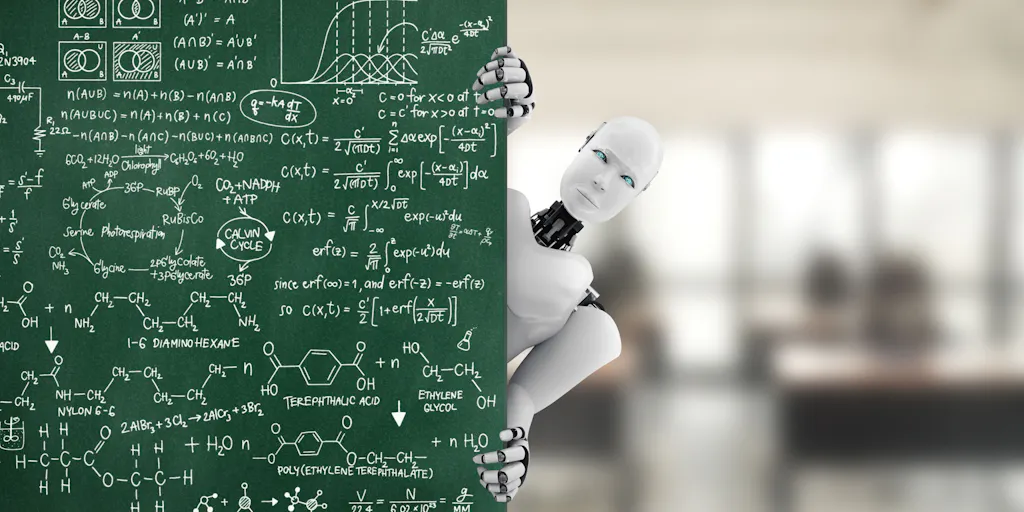
Navigating human-AI collaboration also involves addressing several challenges:
1. Trust and Acceptance
Building trust in AI tools among project team members is critical. This involves demonstrating AI’s reliability and providing clear explanations of how AI derives its recommendations.
2. Data Privacy and Security
AI systems in project management often process sensitive data. Ensuring robust data privacy and security measures is essential to protect this information and comply with regulations.
3. Over-reliance on AI
While AI can significantly enhance project management, over-reliance on AI without critical human oversight can lead to suboptimal decisions. Balance is key, ensuring AI augments human capabilities without replacing essential human judgment.
viii. Case Studies of Successful Human-AI Collaboration

A. Case Study 1: Construction Project Management
AI in Construction Project Management: In the construction industry, AI has been leveraged to predict project delays, optimize resource allocation, and enhance safety. For example, a multinational construction firm implemented an AI-driven predictive analytics tool that significantly reduced project delays by providing early warnings of potential schedule bottlenecks. Human project managers used these insights to implement effective mitigation strategies, resulting in a 20% improvement in project delivery times.
B. Case Study 2: Software Development Project
AI in Software Development: A leading software development company integrated AI into their project management processes to automate routine coding tasks and perform code reviews. While AI handled repetitive coding work, human developers focused on higher-level design and problem-solving. The collaboration led to a 30% increase in development speed and improved code quality.
ix. The Future is Now: Embracing the Change

The future of project management lies in human-AI collaboration. By embracing this change, fostering a culture of continuous learning, and investing in the right tools and training, project management professionals can unlock a new era of efficiency, productivity, and project success. Remember, AI is not a replacement conductor, but rather a skilled musician joining the project management orchestra. Together, they can create a beautiful symphony of success.
x. Conclusion
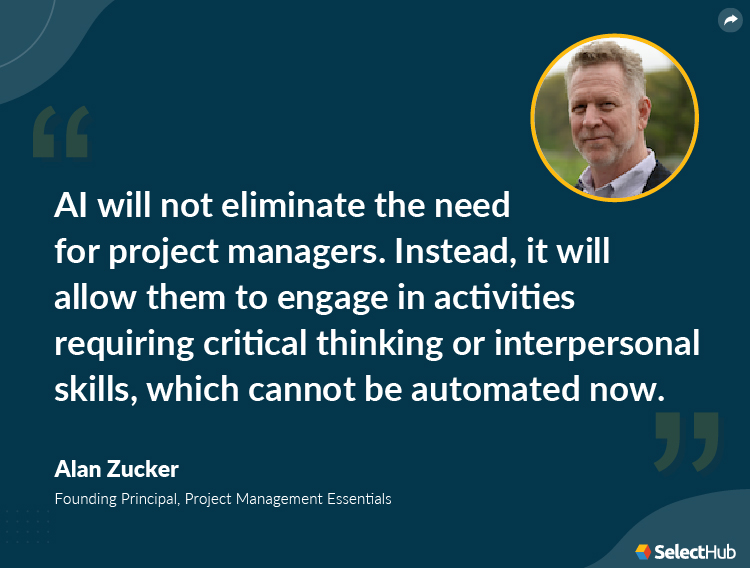
The future of project management lies in the harmonious collaboration between humans and AI. By understanding each other’s strengths and creating an environment where both can thrive together, project outcomes can be significantly enhanced, leading to higher efficiency, better decision-making, and more innovative solutions. Navigating this path requires continuous learning, adaptation, and a balanced strategy that leverages the best of both worlds.
As we move further into the AI-driven era, the synergy between human creativity and empathy with AI’s analytical prowess will undoubtedly redefine the landscape of project management, creating opportunities for unprecedented levels of success and innovation.
xi. Further references
Navigating the Human-AI Collaboration in Project …LinkedIn · PECB20+ reactions · 6 months ago
